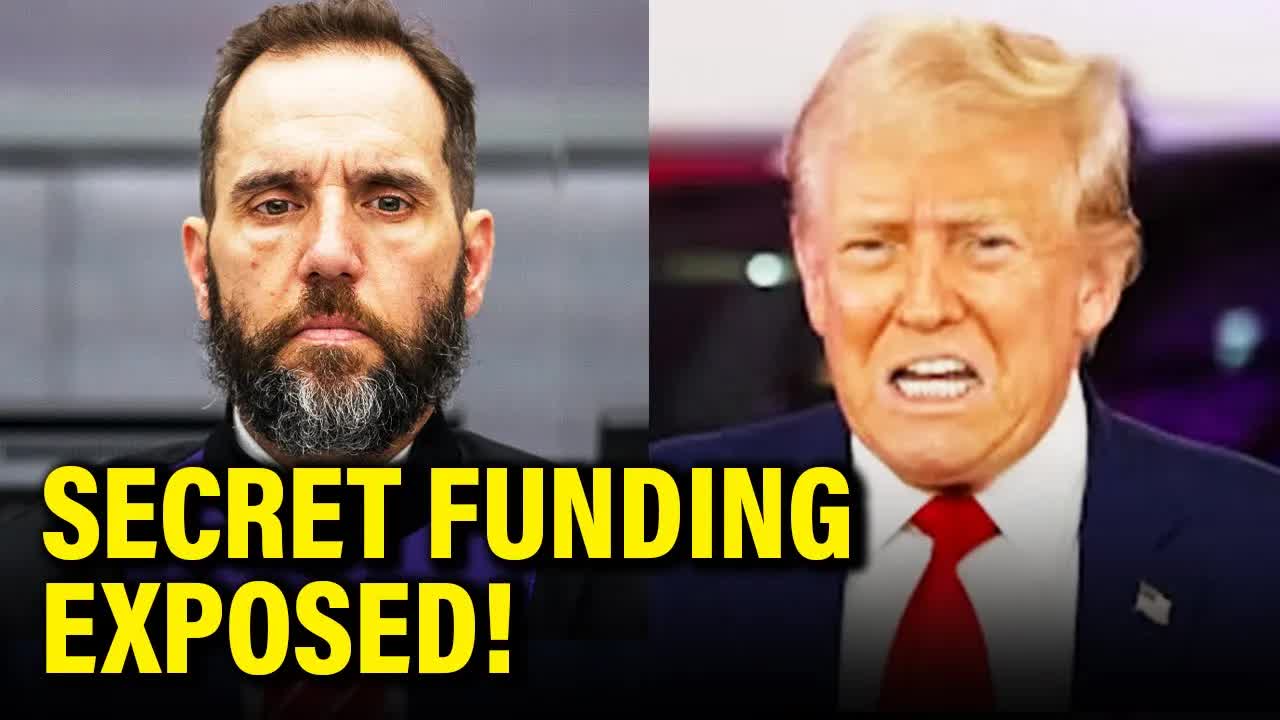Recent revelations have emerged that could significantly impact former President Donald Trump’s legal battles and his campaign strategy as the 2024 election looms.
A staggering 1,900 pages of evidence supporting special counsel Jack Smith’s immunity brief were unveiled, shedding light on the financial underpinnings of the January 6th rally.
Among the documents is crucial information regarding the funding sources for the event and the travel expenses for many attendees.
This begs the question: how will this affect Trump’s legal standing and his prospects in the upcoming election?
Jack Smith faces a daunting task.
He must demonstrate that Trump’s actions on January 6th do not qualify for immunity as outlined in a Supreme Court decision from July.
This ruling established three categories to assess whether Trump can evade prosecution: whether his behavior constituted official conduct, whether it falls under a presumption of immunity, or whether it was purely private conduct, which would carry no immunity at all.
The funding details of the rally are pivotal in determining the nature of Trump’s conduct that day.
Was Trump acting in his capacity as president during the rally, or was he campaigning?
This distinction is crucial.
If he was fulfilling presidential duties, he may claim immunity; however, if he was merely campaigning, his actions could be viewed as private conduct, leaving him vulnerable to prosecution.
The evidence suggests that the rally was financed by private donations, which strengthens Smith’s position in arguing that Trump’s actions were not presidential but rather campaign-related.
The documents reveal significant financial contributions to the rally.
For instance, Turning Point Action, founded by conservative activist Charlie Kirk, allocated $1 million to mobilize social media influencers and students to attend the event.
Additionally, Trump Jr.’s group, Save the U.S. Senate, contributed $500,000 to support attendance.
These expenditures suggest a deliberate effort to create an appearance of grassroots support rather than a spontaneous outpouring of public enthusiasm.
Further analysis shows that Tea Party Express spent $400,000 on promotional efforts, including a dedicated website and targeted advertisements aimed at boosting rally attendance.
The evidence paints a picture of a well-orchestrated campaign event rather than an organic gathering of supporters.
This raises eyebrows about the authenticity of the rally’s participation and the motivations behind it.
Moreover, $200,000 was earmarked for various logistical expenses, including hotels, private flights, and security for select attendees, while another $300,000 was allocated for speaker fees and transportation for rally-goers within a 180-mile radius.
These figures highlight a systematic approach to rally attendance that contradicts the notion of a spontaneous, grassroots movement.
As the legal landscape continues to evolve, the implications of this funding are profound.
Not only does it challenge the narrative surrounding the January 6th rally, but it also raises questions about the integrity of Trump’s campaign tactics.
Voters must consider whether they want to support a candidate who allegedly orchestrated a paid effort to rally individuals who would later engage in violent acts at the Capitol.
In addition to the implications for Trump’s campaign, these revelations could bolster ongoing civil suits against him related to the events of January 6th.
For instance, Capitol police officers injured during the insurrection have filed lawsuits, and Trump has attempted to dismiss these cases by claiming presidential immunity.
However, courts have ruled against him, indicating that the use of private funds for the rally undermines his defense.
Judge Tanya Chutkan’s recent decision to release these documents, despite Trump’s requests for delay, further emphasizes the importance of transparency in the legal process.
Trump argued that releasing the information before the election would constitute interference.
However, Judge Chutkan countered that withholding such documents would be far more detrimental to the electoral process, maintaining that the public has a right to access court filings.
The Supreme Court’s handling of similar cases has shown that election timelines do not warrant altering standard judicial procedures.
In previous instances, such as the Colorado ballot issue concerning Trump’s eligibility due to his role in the insurrection, the court acted swiftly.
The failure to expedite decisions regarding Trump’s immunity suggests a consistent approach to legal matters, irrespective of electoral considerations.
As voters prepare for the upcoming election, the implications of these revelations cannot be overstated.
The funding of the January 6th rally by organizations linked to Trump and his allies raises critical questions about the motivations behind the event and the integrity of those involved.
With the evidence now public, it is vital for the electorate to scrutinize these developments closely as they head to the polls.
With the stakes higher than ever, the unfolding narrative surrounding Trump’s actions on January 6th and the funding of the rally will undoubtedly shape the political landscape in the months to come.
As new information continues to surface, the intersection of law and politics remains a focal point of national interest.































